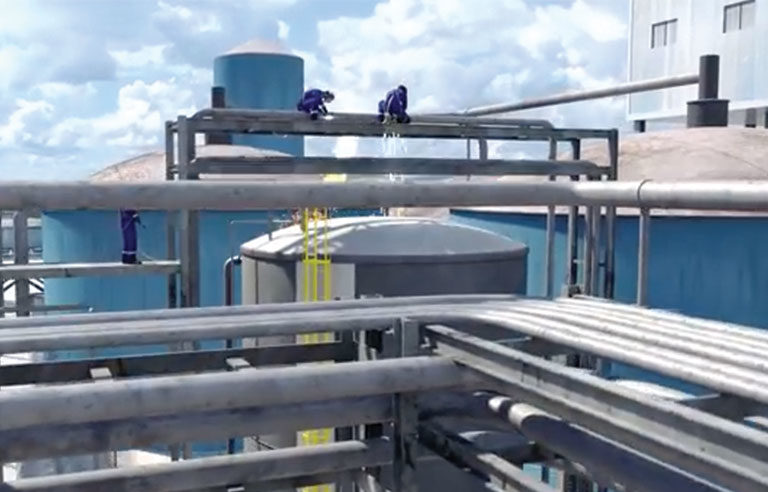CSB releases final report on 2017 hot work explosion in Louisiana

Washington — A more vigorous process safety management system approach likely would have helped identify, evaluate and control the hazards that led to a hot work-related explosion that killed three workers and injured seven others last year in DeRidder, LA.
That recommendation is one of many included in the Chemical Safety Board’s final report on the incident, published April 24.
The blast occurred Feb. 8, 2017, at the Packaging Corporation of America’s containerboard mill, which produces pulp used in boxes and cardboard displays.
A video posted April 4 shows how the incident occurred after welding repairs were made on pipes above and connecting to a 100,000-gallon foul condensate tank that contained a mixture of water, turpentine and sulphur compounds. CSB notes in the video that “the company also assumed the tank contained mostly water, was sealed off from the atmosphere and did not pose a safety risk. These assumptions were, however, incorrect.”
Residual turpentine, which normally would have been skimmed off the top of the water by a recovery system, was not removed because “there was confusion as to who at the mill was responsible for operation of the foul condensate tank,” the video states. Therefore, a valve from the tank to the turpentine recovery system was closed for months.
About 8 a.m. on the day of the incident, a PCA employee inspected the area in and around the water piping using a gas detector and found no flammable atmosphere. The employee, however, did not check inside the tank, CSB states.
The agency could not pinpoint a precise cause of the ignition, but speculated that it could have been sparks or molten slag from the welding. The explosion occurred at 11:05 a.m., launching the tank over a nearby six-story structure and about 375 feet away.
In its report, CSB states that the explosion could have been prevented had PCA:
- Conducted a process hazard analysis for the non-condensable gas system.
- Applied effective safeguards to prevent an explosion in that system.
- Evaluated safer design options to eliminate the possibility of additional air entering the foul condensate tank.
- Established who was responsible at the mill for operation of the foul condensate tank.
Although OSHA’s process safety management regulations do not apply to the containerboard mill’s non-condensable gas system, CSB states that PCA should have followed voluntary guidelines.
“Hot work incidents occur across all industries and cause far too many serious injuries and deaths,” CSB Chair Vanessa A. Sutherland said in a press release. “These events, like the explosion at PCA, often reveal weaknesses in a facility’s process safety management system. Companies must effectively identify, evaluate, and control hazards at their facilities so that future hot work incidents can be prevented.”
Post a comment to this article
Safety+Health welcomes comments that promote respectful dialogue. Please stay on topic. Comments that contain personal attacks, profanity or abusive language – or those aggressively promoting products or services – will be removed. We reserve the right to determine which comments violate our comment policy. (Anonymous comments are welcome; merely skip the “name” field in the comment box. An email address is required but will not be included with your comment.)

